SELPE: Price increases are the main concern for consumers
Three out of four consumers buy products with the main criterion of monetary expenditure, while price increases are the main concern for three out of four consumers, according to the 6th consumer trend recording study of the Business & Retail Association of Greece (SELPE), which started on October 2019.
Wednesday, August 17, 2022

The research was carried out with the scientific support of the ELTRUN laboratory of the Athens University of Economics and took place in the period 19-21 June 2022 through a Panhellenic Survey on a sample of 900 consumers.
The results of the survey record the significant change that has occurred in the consumer public in the last year and the great impact of inflationary pressures on disposable income and, by extension, on the retail market in Greece.
How do they choose the products?
In relation to the factors by which consumers choose to buy products, the percentage of consumers who buy products with the main criterion of monetary expenditure increased from 46% last year at the same time to 74% in 2022, with all other criteria recording a decrease. This result shows, on the one hand, the reduction of consumers’ disposable income and, on the other hand, that the public’s concern regarding price increases has increased significantly.
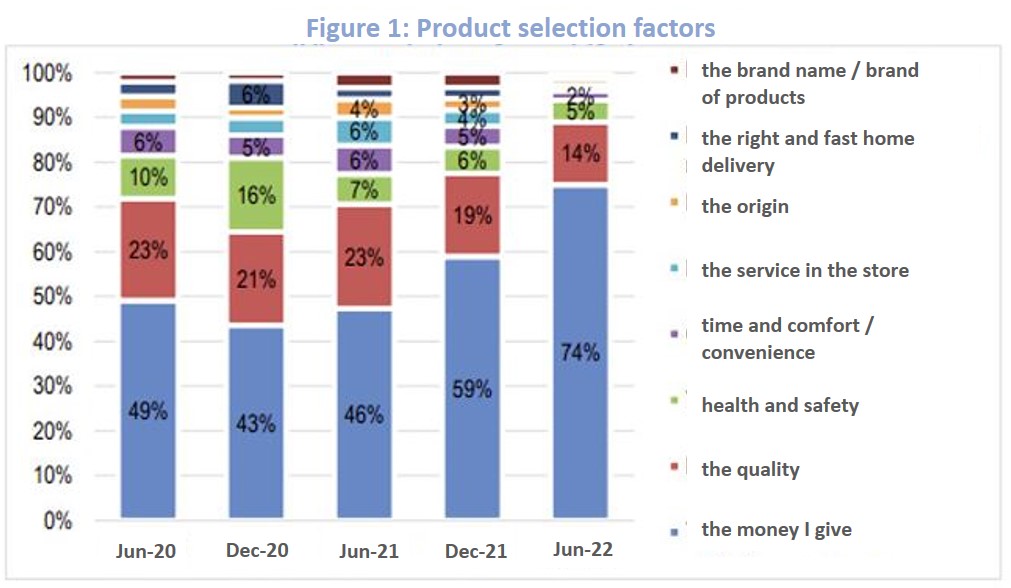
Specifically, regarding disposable income, consumers estimate that increases in energy costs reduce their disposable income by an average of 17%, with 2 out of 3 consumers (66%) stating that their disposable income decreases by more than 20%.
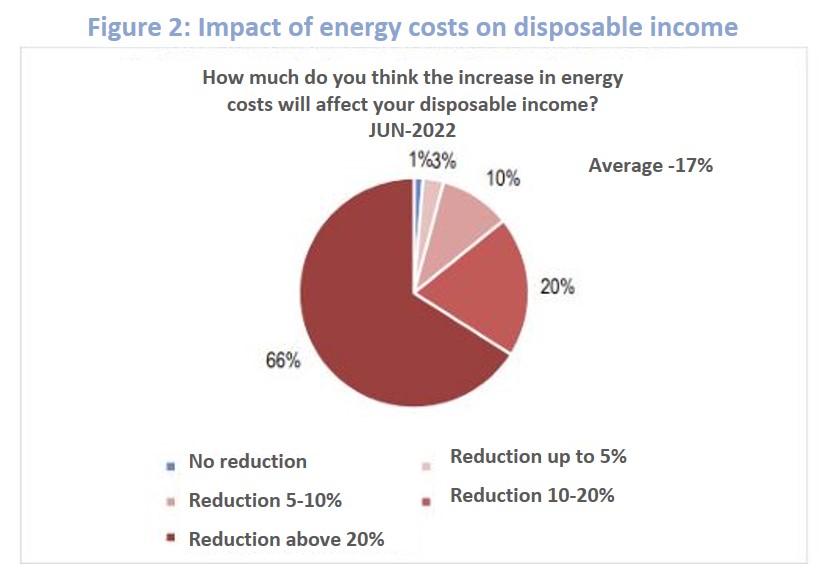
Main concerns
Price increases are the main concern of consumers today, at 73%. This percentage is significantly higher than the corresponding percentages recorded in Western Europe. Only in the United Kingdom is a relatively equally high figure of 60% recorded. The second main concern of consumers is Greek-Turkish relations with a rate of 11%, followed by unemployment with 7%. The war in Ukraine, which is the second biggest concern in Western Europe with rates ranging from 15% to 34%, in Greece has just 2%. Of course, it must be noted that, basically, the main source of price appreciation today is due to the invasion of Ukraine and the energy crisis, so in the countries of Western Europe the cause is recorded more strongly, while in Greece the result.
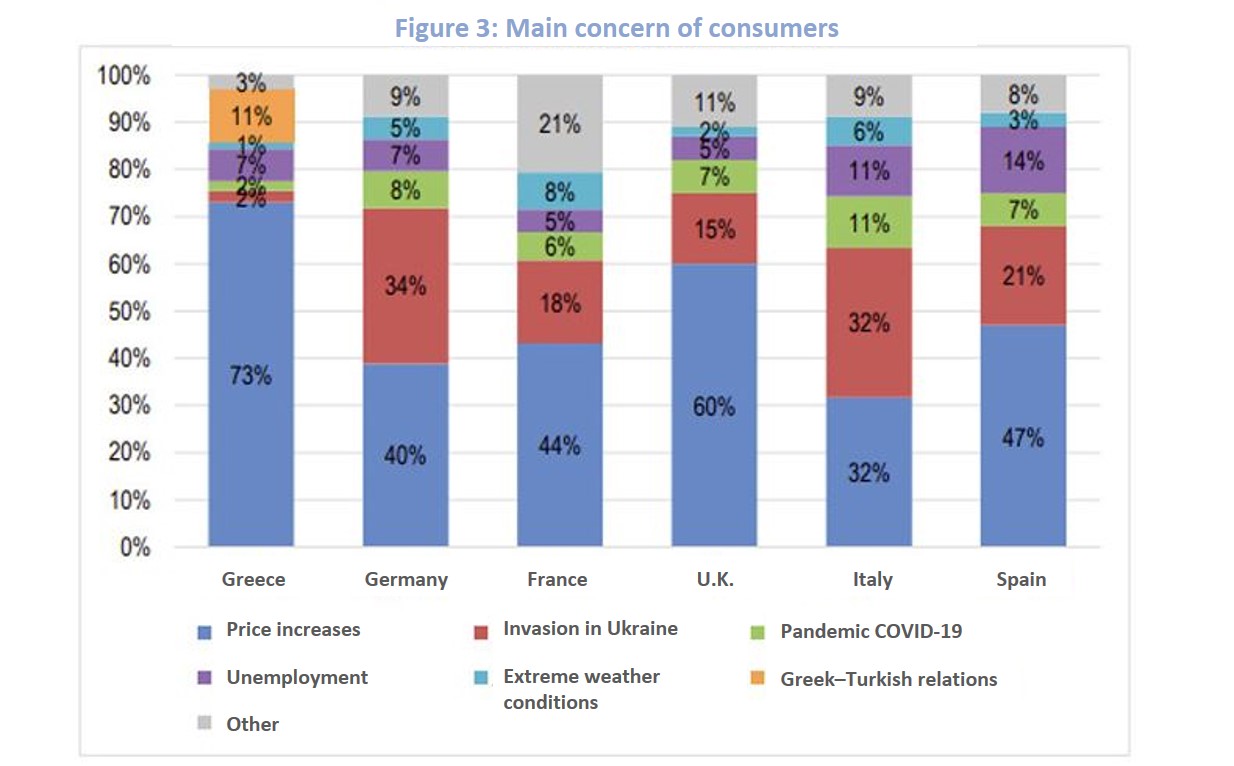
Half of Greeks will not take a holiday this year
Finally, the majority of the public, at a rate of 48%, declares that they will not take a vacation this summer. 22% say they will, but to a lesser extent, and only 13% say they will do the same as every year.
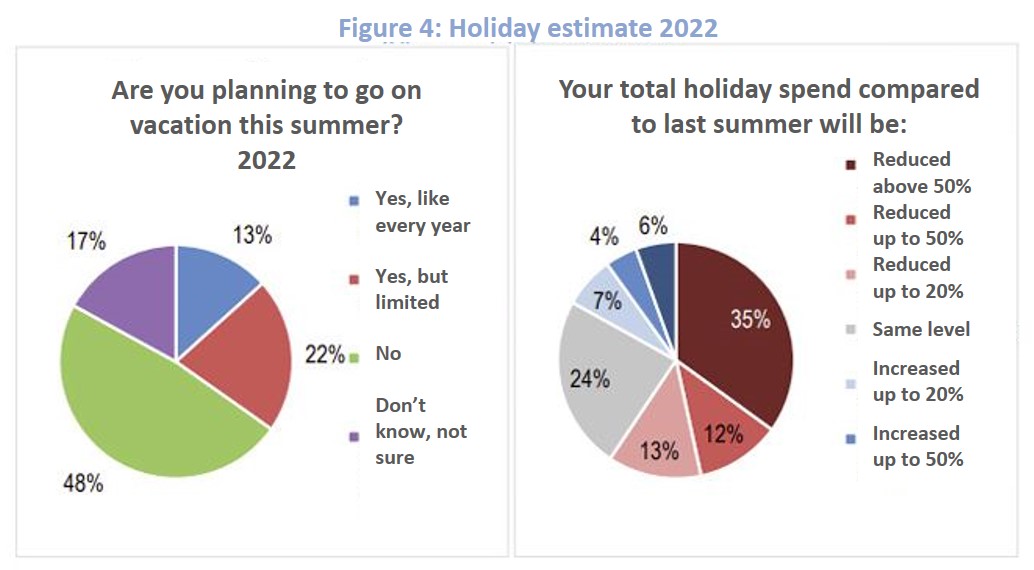 As for the amount of the estimated spending on vacations in 2022, it is estimated on average that it will decrease by 17%, with the majority (35%) stating that they will reduce their spending by more than 35%.
As for the amount of the estimated spending on vacations in 2022, it is estimated on average that it will decrease by 17%, with the majority (35%) stating that they will reduce their spending by more than 35%.
The role of income
In relation to the factors affecting this year’s holidays, overall, the reduced disposable income plays the biggest role, for 63% the reduction in income due to product price increases and for 50% the reduction in income due to energy costs. The increased cost of transportation with 52% is also a very important factor and for 23% the cost of accommodation. Concern over the COVID-19 pandemic or Greek-Turkish relations does not seem to play a role.
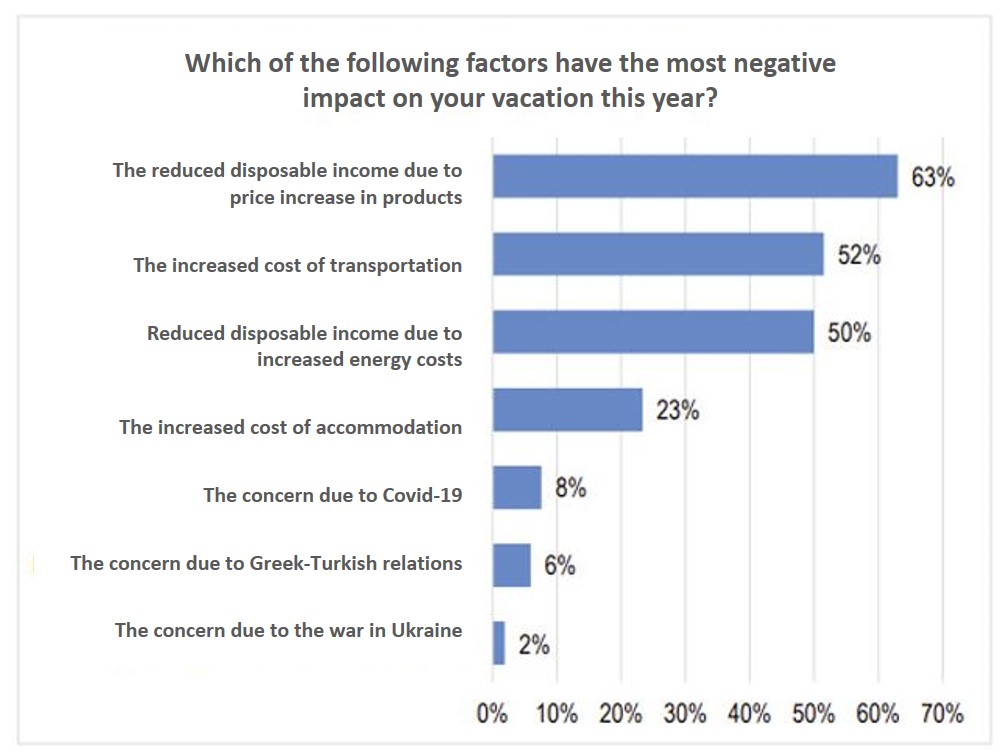
Source: FnB Daily #1483/2022-07-07
